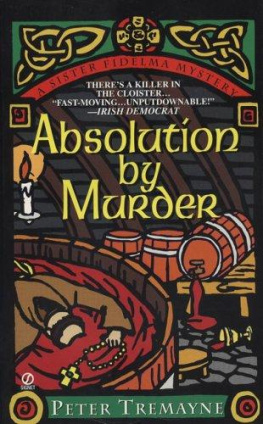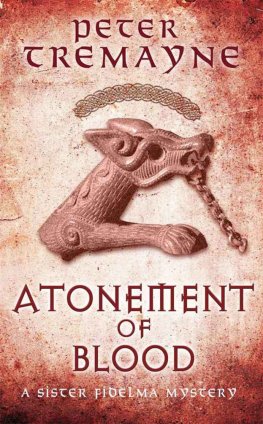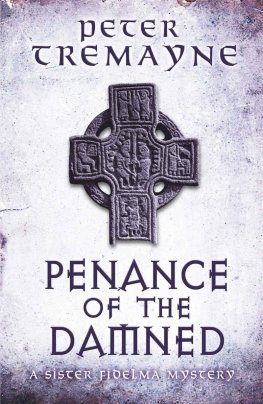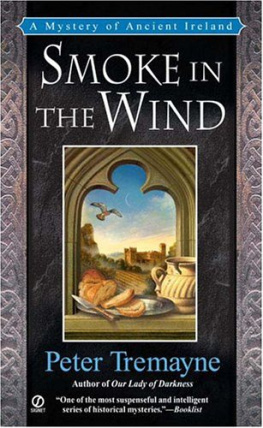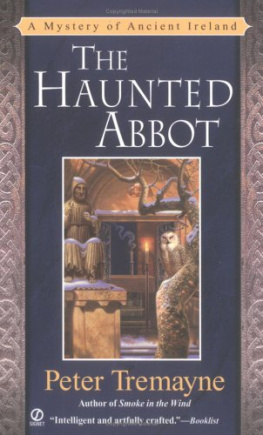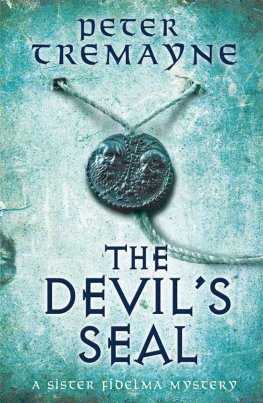Peter Tremayne - Act of Mercy
Here you can read online Peter Tremayne - Act of Mercy full text of the book (entire story) in english for free. Download pdf and epub, get meaning, cover and reviews about this ebook. year: 2011, publisher: St. Martin, genre: Detective and thriller. Description of the work, (preface) as well as reviews are available. Best literature library LitArk.com created for fans of good reading and offers a wide selection of genres:
Romance novel
Science fiction
Adventure
Detective
Science
History
Home and family
Prose
Art
Politics
Computer
Non-fiction
Religion
Business
Children
Humor
Choose a favorite category and find really read worthwhile books. Enjoy immersion in the world of imagination, feel the emotions of the characters or learn something new for yourself, make an fascinating discovery.

- Book:Act of Mercy
- Author:
- Publisher:St. Martin
- Genre:
- Year:2011
- Rating:3 / 5
- Favourites:Add to favourites
- Your mark:
- 60
- 1
- 2
- 3
- 4
- 5
Act of Mercy: summary, description and annotation
We offer to read an annotation, description, summary or preface (depends on what the author of the book "Act of Mercy" wrote himself). If you haven't found the necessary information about the book — write in the comments, we will try to find it.
Act of Mercy — read online for free the complete book (whole text) full work
Below is the text of the book, divided by pages. System saving the place of the last page read, allows you to conveniently read the book "Act of Mercy" online for free, without having to search again every time where you left off. Put a bookmark, and you can go to the page where you finished reading at any time.
Font size:
Interval:
Bookmark:
Peter Tremayne
Act of Mercy
I will rejoice and be glad in Thy mercy for Thou hast seen my affliction and hast cared for me in my disaster.
Psalm XXXI. 7Chapter One
Ardmore Bay, on the Irish south coast, mid-October, A.D. 666.
Colla, the tavernkeeper, tugged on the leather reins to halt the two sturdy donkeys which had been patiently hauling his overladen cart along the track across the precipitous rocky headland. It was a soft autumnal morning and the sun had begun its climb in the eastern sky. The quiet sea below the headland reflected the azure canopy which held only a few white fleecy clouds. There was just a hint of a soft breeze from the north-west, giving impetus to the morning tide. Colla, from this high point on the coast, could see that the seas long dim level appeared flat and calm. He had lived long enough by its vast expanse to know that this was an illusion, however. From this distance, human eyes were unable to appreciate the swells and currents of the brooding, treacherous waters.
Around him, sea and coastal birds wheeled and darted with their cacophony of morning cries. Guillemots were gathering along the coast in preparation for their departure during the harsh winter months. A few razorbills, who had already left their cliff nests, could still be seen here and there but they, too, would be gone within the next few weeks. The residue of the hardier summer birds was vanishing now, like the cormorants. Now was the time when the gulls began to dominate; these were the abundant flocks of common gulls, smaller and less aggressive than the large, black-backed glaucous gull.
Colla had risen some time before dawn to take his cart up to the Abbey of St Declan, which stood on the top of the steep headland called Ardmore, the high point overlooking the small harbour settlement below. Colla not only kept the local tavern but he traded with the merchants whose ships used the bay as a sheltered haven; merchants sailing to Eireanns shore from as far afield as Britain, Gaul and from even more distant lands.
His trip that morning had been to deliver four great casks of wine and olive oil which had arrived in a Gaulish merchant shipon the previous evenings tide. In return for such wares, the Abbeys industrious Brothers supplied leather goods shoes, purses and bags as well as objects made from skins of otter, squirrel and hare. Colla was now returning to the harbour to the Gaulish merchant, who would be sailing on the evening tide. The Abbot had been well pleased with the transaction as, indeed, had Colla; his commission was substantial enough to mould his rugged features into a smile of satisfaction as he set out across the headland.
For a moment, however, he halted his donkeys to view the scene below. It gave him a sense of proprietorship as he gazed down, perhaps of power. He could see the tiny harbour in the bay below and several ships bobbing at their anchorage. For Colla, the view seemed to put things in a perspective from which he felt like a king surveying his kingdom.
A shiver interrupted his thoughts as a fresh wind gusted in from the north-west. Hed discerned a subtle change in the morning breeze and realised that it had become stronger and colder. The sun had been up over an hour now and the tide was on the turn. Any moment now, he expected a movement in the bay below. Colla flicked the reins and eased the cart and its burden forward along the steep track twisting down the hill towards the small sandy bay which stretched before him.
Among the ships below, he caught sight of the black silhouettes of a couple of great sea-going vessels, the ler-longa, at anchor in the sheltered harbour. From this vantage point, they looked small and fragile but he knew that, in reality, they were large and sturdy, measuring twenty-five metres from stern to stern enough to brave the great oceans beyond these shores.
His head jerked as he heard an explosive crack, above the general cries of the birds and the distant hiss of the sea. It was immediately followed by an outraged chorus of cries, as disturbed sea birds rose up above the bay, screaming their displeasure. It was the sound and movement that he had been expecting. His keen eyes saw one of the ler-longa moving slowly from its anchorage. The crack had been the great leather sail snapping before the wind as it was hauled into place, straining before the gusts as it was secured. Colla smiled knowingly. The captain would have been in a hurry to utilise the north-western dawn wind combined with the turning tide. What did the sailors call it? A lee-tide running in the same direction as the wind. Good seamanship would soon bring the ship out of the bay and beyond the Ardmore headland southwards to the vast open sea.
Colla strained his eyes to make sure of the identification of theship, but only one vessel was due to set sail on the morning tide. It was Murchads Ge Ghuirainn The Barnacle Goose. Murchad had told him that he was due to leave with a collection of pilgrims setting out for some holy shrine beyond the seas. Indeed, as Colla had driven his cart up towards the Abbey, he had passed a band of religieux, men and women, walking down to the harbour to go aboard her. That was not unusual. The Abbey of St Declan was frequented by such bands of pilgrims from every corner of the Five Kingdoms of Eireann. They usually stayed at the Abbey prior to joining their respective ships which would convey them to their various destinations. Some pilgrims, depending on their character, preferred to stay in Collas tavern. He had a few such staying with him the previous night who must now be on board The Barnacle Goose. There was one young female religieuse who had arrived very late and who was anxious to be aboard at dawn. And Collas nephew, Menma, who helped him run the tavern, had told him that a man and woman had arrived earlier to take a room but they were joining the pilgrim ship as well.
The Barnacle Goose appeared to be making good time through the water, helped onwards by the favourable wind and tide. In some ways, Colla envied Murchad and his handsome ship, heading out across the horizon to adventure and unknown lands. In other ways, the tavernkeeper knew that such a life was not for him. He was no sailor and preferred his days to be more predictable. However, he could have stopped on the headland watching the sea and the ships below all day but he had work to do, a tavern to run. So he turned his attention back to the track, flicking the reins and clucking softly to increase the gait of his donkeys. The animals twitched their ears and obediently strained forward.
It took him all his concentration to negotiate the track because it was always more difficult bringing a cart down a steep hill than hauling it up. He came to a halt in his tavern yard. When he had left, it had been dark, with no one stirring. Now the entire village was a hive of activity as fishermen departed to their boats; sailors, recovering from a drunken nights carousing ashore, stirred and made their way back to their ships, while labourers left for the days work in the fields.
Menma, Collas assistant, a dour-faced young man, was sweeping out the taverns main room when the stocky tavernkeeper entered. Colla glanced around approvingly as he saw that Menma had already cleared the tables where the guests had breakfasted before their departure.
Have you tidied the guests chambers yet? Colla asked, movingto pour himself a mug of sweet mead, to refresh himself from his journey.
His assistant shook his head resentfully.
I have only just cleared the breakfast things away. Oh, and that Gaulish merchant came by asking for you. He said he would return soon with a couple of men to load the goods on his ship at midday.
Colla nodded absently as he sipped his drink. Then he put it down with a reluctant sigh.
Font size:
Interval:
Bookmark:
Similar books «Act of Mercy»
Look at similar books to Act of Mercy. We have selected literature similar in name and meaning in the hope of providing readers with more options to find new, interesting, not yet read works.
Discussion, reviews of the book Act of Mercy and just readers' own opinions. Leave your comments, write what you think about the work, its meaning or the main characters. Specify what exactly you liked and what you didn't like, and why you think so.

